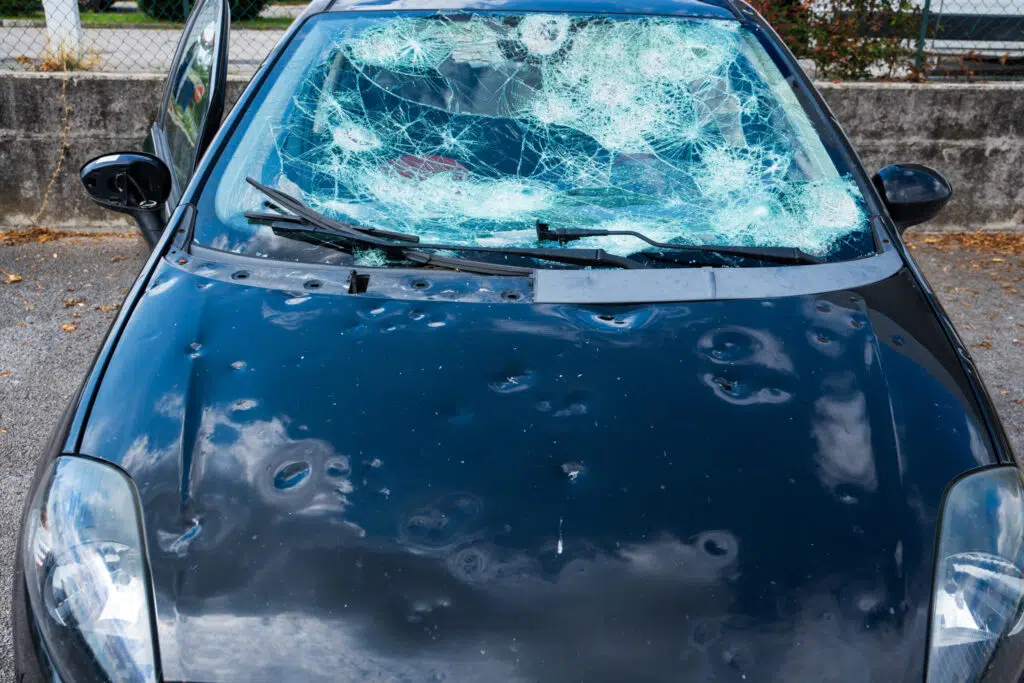Breach of Warranty Attorneys
Purchasing a vehicle should be an exciting experience. However, it can become a nightmare for some buyers when the vehicle malfunctions. Understanding your rights and options in a breach of warranty case is crucial to getting the justice you deserve. Farah & Farah can help you through the process of negotiating with the manufacturer and more.
Home » Lemon Law Attorneys » Breach of Warranty Attorneys
What Is a Breach of Warranty?
A breach of warranty occurs when a product, such as a vehicle, fails to meet the terms outlined in its warranty. Warranties are promises manufacturers make regarding the quality and performance of their products. When these promises are broken, consumers may have the right to seek legal remedies.
How Are Warranty Laws Connected to Lemon Laws?
Lemon laws and warranty laws both protect consumers against vehicle defects. Lemon laws define and focus on vehicles that meet the definition of a “lemon,” while breach of warranty claims cover a broader range of issues, time frames, and products. Sometimes, a breach of warranty claim may also fall under lemon law if the defect significantly impairs the vehicle’s use or safety and the vehicle in question is a car, truck, or RV.
Differences Between Breach of Warranty Laws and Lemon Laws
Breach of warranty laws and lemon laws are different not just in what they cover but also what remedies are available to the consumer. Under lemon laws, a vehicle manufacturer may have to buy back or replace the vehicle after arbitration, but may not have to pay attorneys’ fees. Under breach of warranty laws, the remedy is usually the monetary value of the diminished value of the vehicle.
Breach of Warranty Scenarios
A breach of warranty can occur in various ways, such as:
- The manufacturer cannot fix a defect after several attempts.
- The seller fails to disclose a known defect at the time of sale.
- There is a failure to follow the terms of the warranty agreement.
What Is the Magnuson Moss Warranty Act?
The Magnuson Moss Warranty Act (MMWA) is a federal law enacted in 1975 to protect consumers from deceptive warranty practices. It standardizes how warranties are presented and enforced, ensuring consumers have clear and accurate information when purchasing products.
Key Provisions of the Magnuson Moss Warranty Act
The Magnuson Moss Warranty Act requires manufacturers to:
Provide Clear Warranty Information
Providing clear information includes outlining what the warranty covers and for how long. Additionally, any restrictions or exclusions must be clearly stated for the warranty to be considered valid.
Designate Warranties as Full or Limited
Manufacturers must accurately designate a warranty as full or limited. To be considered a full warranty, five conditions must be met by the warranty.
- No time limit is imposed on the duration of implied warranties.
- Warranty service is provided to all product owners within the warranty period.
- Warranty service is offered at no additional cost.
- If the product cannot be repaired, a replacement or full refund will be provided.
- Consumers are not obligated to fulfill any prerequisites to receive service.
If any of these statements is false, then a warranty is considered limited.
Resolve Disputes Fairly
The Magnuson Moss Warranty Act mandates that manufacturers resolve consumer disputes fairly. In the event of a warranty claim dispute, manufacturers must follow established procedures and refrain from misleading consumers to deny valid claims.
Remedies Under the Magnuson Moss Warranty Act
The remedy available to consumers under the Magnuson Moss Warranty Act is the monetary value of the diminished value of the vehicle. In some cases, to receive reimbursement for legal expenses if they win their claim.
Benefits for Consumers
The Magnuson Moss Warranty Act empowers consumers by providing clear guidelines for warranty coverage and enforcement. It also encourages manufacturers to uphold high-quality standards, as failure to comply can result in legal consequences and damaged reputations.
What Is Covered Under The Magnuson Moss Warranty Act?
The Magnuson Moss Warranty Act covers all consumer products sold with warranties in the United States, including vehicles, appliances, electronics, and more. It applies to express and implied warranties, ensuring comprehensive consumer protection.
Limitations and Exclusions
While the Magnuson Moss Warranty Act provides robust protections, it also allows manufacturers to include certain limitations and exclusions in their warranties. These must be clearly stated and cannot be misleading. Common exclusions include normal wear and tear, misuse, and unauthorized modifications.
What Vehicles Are Covered Under the Magnuson Moss Warranty Act?
All of the same vehicles as are covered by state lemon laws (cars, trucks, and RVs) are also covered by the Magnuson Moss Warranty Act as long as they have a warranty that is still active. Additionally, the Magnuson Moss Warranty Act may be the only source of remedy for consumers with other vehicles, like boats and ATVs, that are faulty but are not covered by state lemon laws.
ATVs
ATV stands for all-terrain vehicle. As its name suggests, it’s designed to travel over a wide variety of terrain. Although they’re technically able to drive on streets as well, they’re not typically street-legal in most US states. Most ATVs consist of three or four wheels, a seat meant to be straddled by its rider, and handles that are used for steering. Most are designed for a single person, but some, called tandem ATVs, have room for a passenger. ATVs operate similarly to motorcycles, except that the extra wheels give them additional stability when traveling at lower speeds.
ATVs and Breach of Warranty
Because lemon laws don’t typically apply to ATVs, as is the case in Florida, there isn’t always a standard set of requirements that consumers must meet like there are for lemon laws . Exactly what the consumer is required to do in order to qualify for a breach of warranty claim may depend.
A breach of warranty occurs when the product or vehicle doesn’t meet the warranty’s standards and is a broken promise on the part of the manufacturer. If the ATV does not meet the standards of being safe and usable as promised by the warranty, then a breach of warranty has occurred.
Boats
In many cases, different parts of a boat were manufactured by different companies. This means that there could be multiple warranties for the same boat, depending on what company manufactured each part of it. The engine could be warrantied separately from the rest of the boat, for example.
Bow to Stern Warranties
As the name suggests, bow-to-stern warranties cover everything from the bow to the stern of the boat. These warranties typically cover the whole boat, including all of its parts and pieces, with the exception of the engine. Some companies don’t offer this type of warranty at all, while others will offer one for a limited time, usually a period between 1 and 5 years.
Bow-to-stern warranties aren’t usually transferable if the boat is sold, so if you’re buying a used boat, chances are good that it won’t come with a full bow-to-stern warranty.
Structural Warranties
Structural warranties cover only the major parts of the boat, including the hull, stringers, bulkhead, and deck. However, what’s included and for how long depends on the boat, the builder, and the specific warranty for it.
Hull Warranties
As implied by the name, hull warranties cover only the hull of the boat. These warranties can often last for a very long time, even for the lifetime of the boat. This is because failures of the hull that are catastrophic enough to be covered by the warranty aren’t very common, especially with new boats.
Gel Coat and Blister Warranties
Blister warranties and gel coat warranties cover specifically blisters that form on the hull. Blisters occur when water gets in between the fiberglass and the gel coat on the hull. This causes bubbles, or blisters, to form. Because this is no longer a common issue, blister warranties are also not terribly common. However, some manufacturers do still provide this warranty.
Extended Boat Warranties
For boats, extended warranties are generally extended service contracts that are marketed as warranties. These warranties are purchased separately from the warranties that might come with the boat upon purchase. Often, the company offering the extended warranty is not the manufacturer and therefore is not technically a warranty. It’s not a promise made by the company that manufactured the boat about the standards or quality of the boat. Instead, it’s a contract with a third-party company that, depending on the law in your state, may only be required to provide as much service as is specifically detailed in the contract.
Boats and Breach of Warranty
A breach of warranty occurs when your boat doesn’t meet the standards set by the warranty. The warranty is a promise made by the company that your boat will meet certain standards. These typically include functionality, safety, and even value. If there’s a defect that impairs the expected function, value, or safety of the boat, then a breach in warranty has occurred.
How Does the Magnuson Moss Warranty Act Impact Lemon Laws?
The MMWA complements lemon laws by providing a federal standard for warranty enforcement. It ensures consumers have consistent protections across all states, regardless of local lemon law variations.
A key benefit of the Act is that it provides consistent protection across all states. This is particularly important for consumers who purchase products in one state and move to another or for those who buy products online from out-of-state sellers.
Legal Recourse for Consumers in Breach of Warranty Cases
The Magnuson Moss Warranty Act empowers consumers to take legal action against manufacturers who fail to honor their warranty obligations. This includes the ability to file lawsuits in federal or state courts, depending on the nature of the claim. If you have incurred $50,000 or more in damages, you may file a lawsuit against the manufacturer in federal court. For claims under $50,000, you might need to pursue legal action in state court, or you could potentially join a class-action lawsuit with others facing similar circumstances.
Informal Dispute Resolution
The Magnuson-Moss Warranty Act can simplify the process of filing a lawsuit, but it also encourages consumers involved in warranty disputes to pursue informal dispute resolution first. In fact, some warranties mandate that consumers undergo this resolution process before taking further action.
What Are My Rights Under Breach of Warranty Laws and the Magnuson Moss Warranty Act?
Under these laws, consumers have several rights, including the right to repairs, replacements, or refunds. These rights vary depending on local laws, the type of warranty, and the specific terms outlined in the warranty agreement. The rights outlined by the federal MMWA provide the minimum protections for consumers, while local laws may offer additional safeguards.
Depending on the type of vehicle you have, the specific warranty for it, the issue in question, and your location, different laws may apply to your case. Speaking with a lemon law breach of warranty attorney can help you to determine the best course of action in seeking a remedy.
Does Florida Have Additional Breach of Warranty Laws?
Florida has its own breach of warranty laws that offer guidelines for consumers and businesses. These laws are crafted to complement federal regulations and ensure fair treatment under MMWA guidelines. Given that case law can alter the interpretation of these laws, it is essential to consult an experienced breach of warranty attorney to review your specific situation.
Additional Consumer Protections
In addition to lemon law and MMWA protections, Florida consumers are safeguarded by their state’s Uniform Commercial Code (UCC). The UCC provisions include express and implied warranties, ensuring all consumer products meet essential quality and performance standards.
Legal Recourse
Consumers in Florida have the right to take legal action against manufacturers that do not fulfill their warranty obligations. Depending on the specifics of the claim, they can file lawsuits in either state or federal courts.
What Should I Do if I Am Dealing With a Breach of Warranty?
If you suspect you have purchased a lemon or are dealing with a breach of warranty, taking action promptly is essential. Here are some steps to follow:
Document the Issue
Keep detailed records of all product issues, including dates, descriptions, and all repair attempts. This documentation will be crucial if you need to pursue legal action.
Contact the Manufacturer
Contact the manufacturer or seller (depending on who your warranty is with) to report the issue and request repairs, replacements, or refunds. Be sure to provide all relevant documentation and follow up regularly.
Seek Legal Advice
If the manufacturer fails to address the issue, consider seeking legal advice from a qualified lemon law or breach of warranty attorney. They can help you understand your rights and guide you through the legal process.
Consult With an Attorney
Hiring a breach of warranty lawyer can be a wise decision, especially if you are dealing with a complicated or contentious case. If you face a breach of warranty issue, don’t hesitate to contact our expert breach of warranty attorneys. Our qualified team can help you understand your options and guide you through the process, ensuring you receive the quality and reliability you deserve.

We’re licensed to practice law in Florida, so we can do everything from sending demand letters to representing you in court for a lawsuit. If you don’t live in Florida, we can still help you by sending demand letters and negotiating settlements for you. There’s no cost to you unless your case is successful. Contact us today for a free consultation.

free case review
Client Testimonials

Related Blogs













